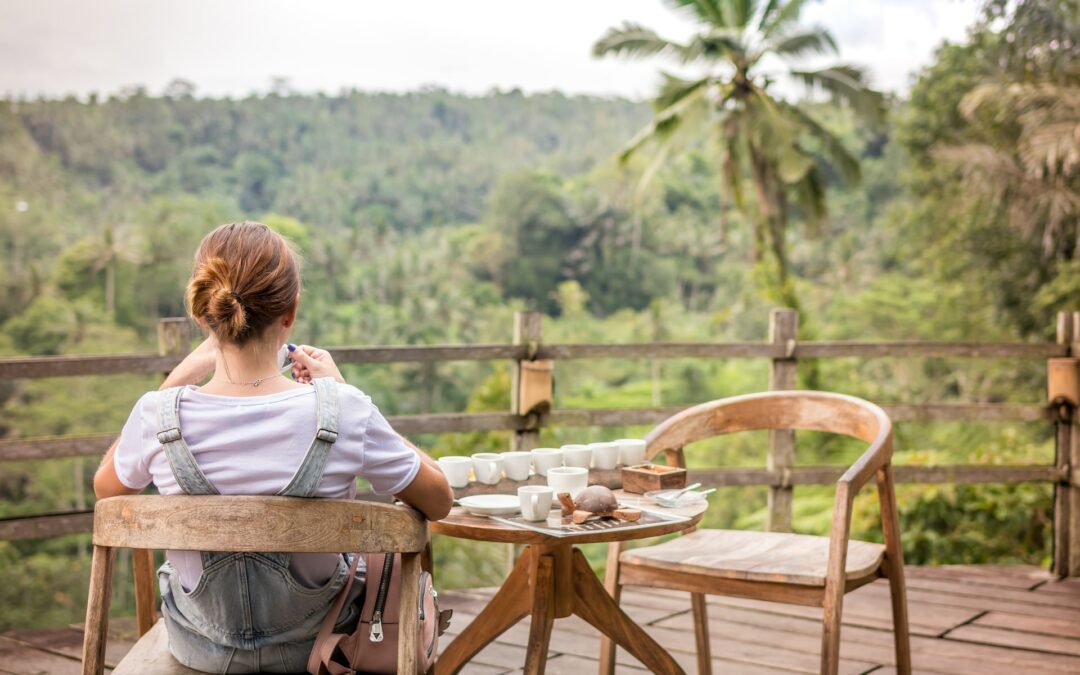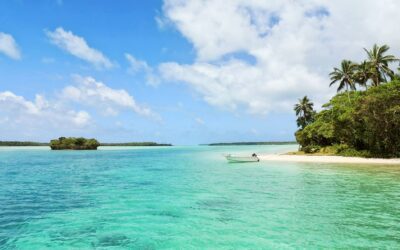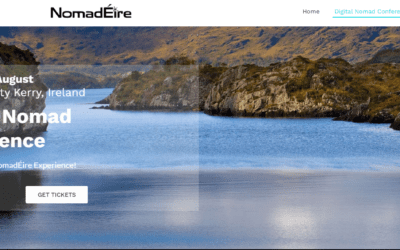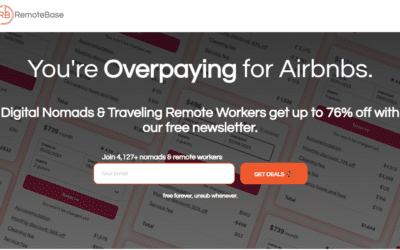|
|
Many individuals decide to embrace the digital nomad lifestyle because they want to escape the confines of modern city life and find a different way of living. That lifestyle is often a mix of high-tech, requiring significant digital infrastructure and online networks, but also simpler and closer to nature.
Cabin, an online social DAO (decentralized autonomous organization), is embracing this philosophy to create “in real life” neighborhoods for its online community of digital nomads and remote workers.
The project is in its infancy but has big ambitions. But what exactly is Cabin offering and would you want to be a part of it?
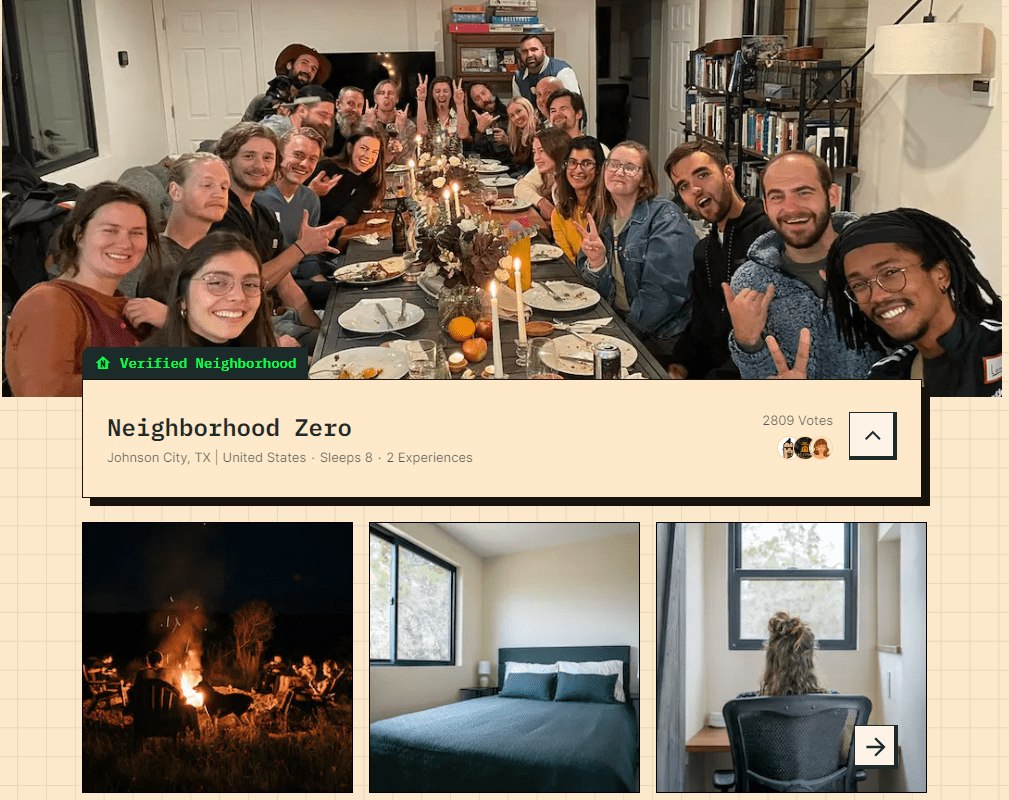
The Cabin economy
According to Cabin’s founder Jon Hillis cities are built on a high density of shared culture, economy, and governance. While that has previously required people to share a physical location as well, he argues that is no longer the case. There are now strong online communities that govern themselves and share these characteristics, mainly populated by location-flexible knowledge workers, such as digital nomads.
While these online communities are strong, Hillis recognizes the benefits of physical closeness for the community, at least some of the time. So, in response to this, for Cabin’s online community, he wants to create “in real life” spaces.
It doesn’t make sense to try and permanently gather this dispersed, international, and often traveling community in one place. So instead, Hillis is working to build a network of “neighborhoods” within the community that individuals can visit when they need to touch base.
Cabin neighborhoods
The proposal is that Cabin neighborhoods will be independently owned and operated by members of the Cabin community. Individuals become members of the community by owning NFTs, digital tokens, in Cabin, and they receive voting rights based on their cabin ownership.
Those wanting to launch and manage neighborhoods must have their proposal endorsed by the community by receiving a minimum of 1,000 community votes. Community members can then book to stay in neighborhoods, just as they would any other kind of coliving and coworking facility, but they receive significant preference over any non-community members that wish to access the neighborhood.
There are a few rules for what a neighborhood should look like. Specifically, it should be owned and operated by a member of the community and have a strong community spirit, provide fast internet access, and provide residents with access to nature.
These last two specifications are extremely important. Since most community members are online workers, internet access is fundamental. Hillis also believes that city living, separated from nature, stifles creativity, and thinks that building communities closer to nature is essential.
The neighborhoods must also be true coliving spaces, without fences and barriers separating the members of the community, allowing them to come together and build something that is greater than the sum of its parts. In line with this, Cabin holds build weeks where members of the community come to a neighborhood and support it by building infrastructure.
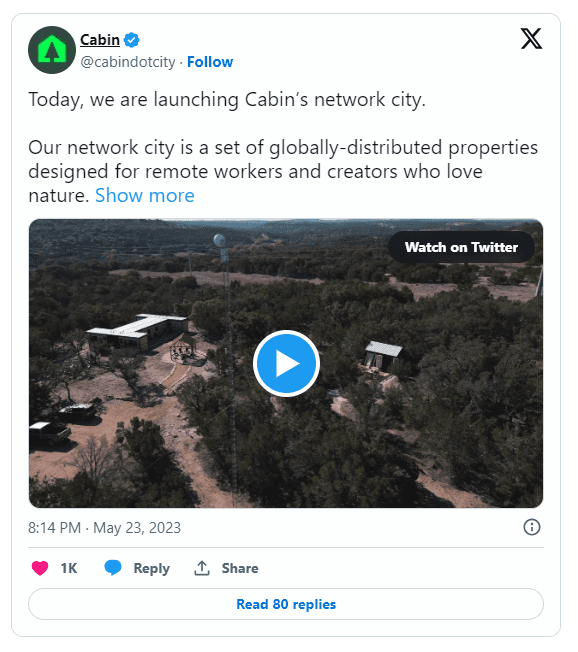
The current scale of the project
The Cabin project officially started in 2021 and hit the ground running. It already has 300 citizens, who joined from Cabin’s online community.
The first neighborhood is known as Neighborhood Zero and is located in the Texas Hill Country. It is a group of three independent cabins spotted around a 50-acre property. The infrastructure hub is a custom-fabricated shipping container surrounded by tiny coliving cabins.
Cabin next added two more neighborhoods, Montaia Basecamp in Sierra Nevadas and Radish in the California Bay Area. New properties are being added regularly with neighborhoods now in Washington, Puerto Rico, Nevada, Bangalore, Colorado, Portugal, Costa Rica, and more. You can already book stays at a variety of Cabin locations here.
Cabin adds to have 10 neighborhoods functioning by 2025, and 100 by 2030. The ultimate aim is to have hundreds of thousands of neighborhoods around the world supporting a strong online community.
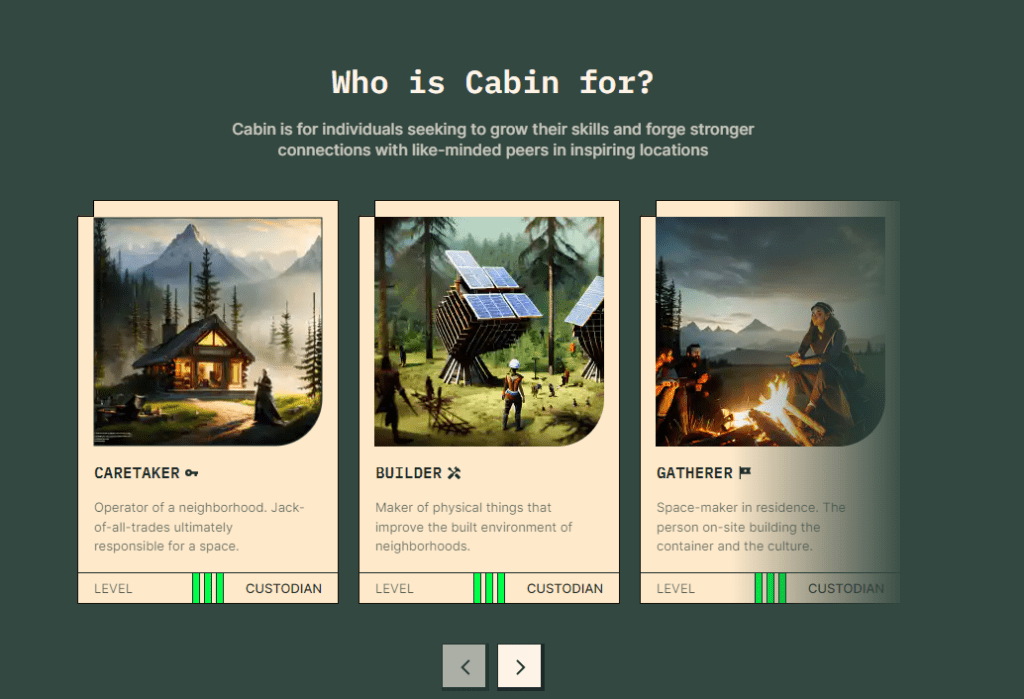
Future of Cabin
The Cabin project is still in its infancy, so it is difficult to predict its future. We have certainly seen projects like this in the past that have not delivered everything they promised. But if the enthusiasm of the existing members is anything to go by, there is certainly potential.
Read Cabin’s Litepaper for A Network of Neighborhoods here.

